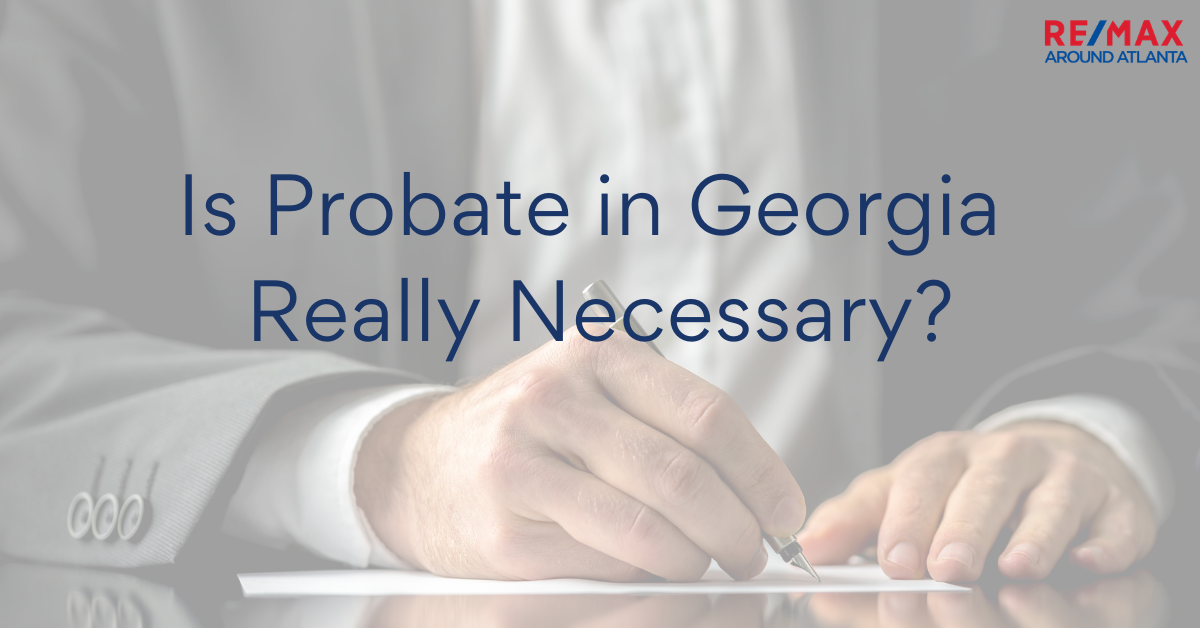|
A Georgia Real Estate Agent’s Guide to Georgia Probate and Distribution of Real Estate Is Probate in Georgia Really Necessary? No! Probate court proceedings aren’t always necessary. Usually, they are required only if the deceased person owned assets in his or her name alone. Assets that are jointly owned, assets that name a beneficiary (insurance policies, retirement accounts or payable on death bank accounts) and assets in revocable living trusts can usually be transferred to their new owners without probate. Georgia is unique in that probate court proceedings aren’t always necessary. If all the heirs agree, probate can be skipped altogether. Commonly, probate is conducted in about six months to a year, unless, of course there is a court fight over the will or unusual assets or creditors’ claims that complicate matters. In certain circumstances, any heir (person entitled to inherit under state law, in the absence of a will) can ask the local probate court for an order stating that no probate is necessary. The court will grant the request if the deceased person did not leave a will, all the heirs agree on how to divvy up the person’s assets, and there are no debts or creditors don’t object to the lack of a probate proceeding. It will still be important to change the legal ownership to the person that inherits to there is not a title problem. If there is a court order, an attorney can handle the name change. The Role of the Executor or Personal Representative (PR) When Probate is Required If a decedent named an executor (generally called a personal representative or PR in Georgia) in a will, it will be up to that person to take charge of settling the estate. If probate is necessary, the named person will go to the probate court and request to be formally appointed as personal representative of the estate.
If there is no will, or the person named in the will isn’t available or isn’t willing to serve, the probate court will appoint an “administrator.” This person does the same job as an executor and is also called the personal representative (PR). The surviving spouse, if any, has first priority to be appointed as administrator (unless the couple was getting a divorce at the time of the death). The PR takes an oath promising to act in the best interests of the estate, and the court will then issue a document called “Letters Testamentary” (if the executor was named in the will) or “Letters of Administration” (if the court appoints an administrator). This document gives the PR the duty and authority to:
Selling Real Estate The PR has the right to sell real estate that is not passed automatically to a joint tenant. However, before the PR can do that, the PR must have been specifically granted the authority to do so. The PR files a petition in the probate court asking for the authority to sell the property. At that point, it will be up to the judge to decide whether to go forward with the sale. This should always be done prior to putting the property on the market. The PR sells the property in the name of the Estate. Whenever a PR signs a document such as a Listing Agreement, a Purchase and Sale Agreement, an amendment or an exhibit, the PR is standing in the place of the Estate. The signature on documents therefore should be “Estate of John Doe, by Jane Doe, Executor.” The title, of course, can vary. Executor or Administrator or Personal Representative could be used. If the Estate’s signature is not correct, then the document may not be enforceable against the Estate. Further, the party that signs a document incorrectly may be held personally liable for a default in failing to deliver the property. Good to Know The PR can distribute estate assets to inheritors only after debts and taxes are paid. The PR follows the instructions in the will, or if there is no will, turns to state law to determine who inherits. Georgia law provides that the deceased person’s closest relatives inherit his or her assets. For example, if the deceased person is survived by a spouse and children, they share the estate. When the Executor/PR has paid all debts, filed the required tax returns, and distributed all the estate assets, the PR files a Petition for Discharge with the court, asking to be formally relieved of his or her duties. If the court determines that the Executor/PR has performed all the duties required, the discharge will be granted. This closes the estate and releases the Executor/PR from any liability.
2 Comments
I find it interesting when you said that probate might not be necessary if an heir would be available even if there is no will. I never knew that can be a possibility, so it must be helpful to have a professional who has undergone a probate training program understand what options we might have. We just have this issue with the properties that my grandparents left, since they were not able to create a will and testament due to their medical conditions which they got before they even had a chance to talk to an expert.
Reply
Leave a Reply. |
RMAAReal Estate News, Brokers Blog & More Categories
All
Archives
July 2024
|


 RSS Feed
RSS Feed